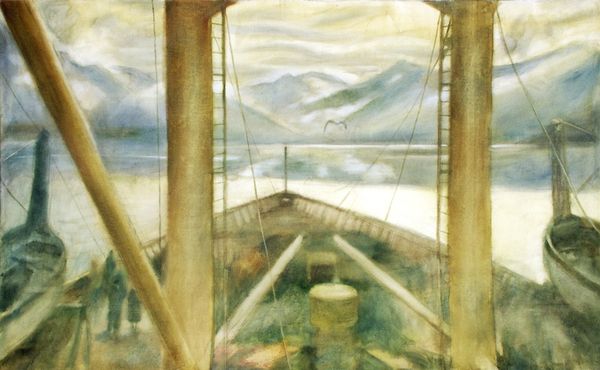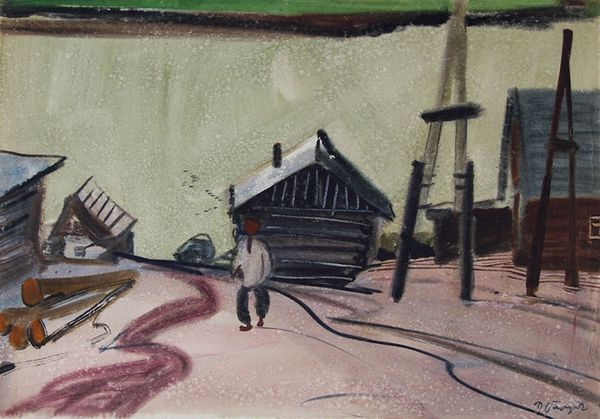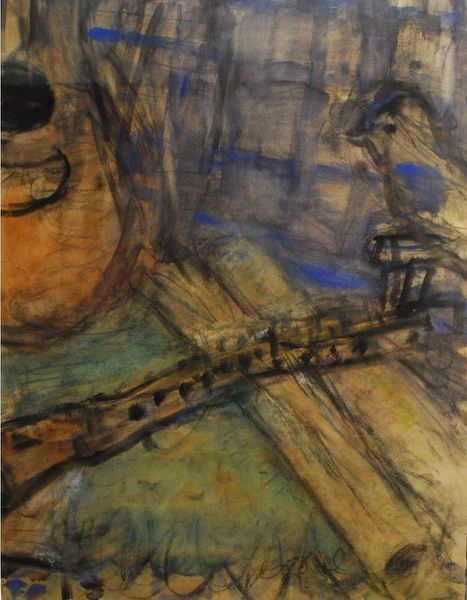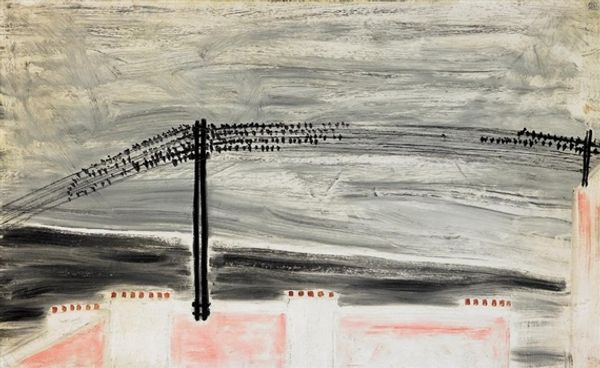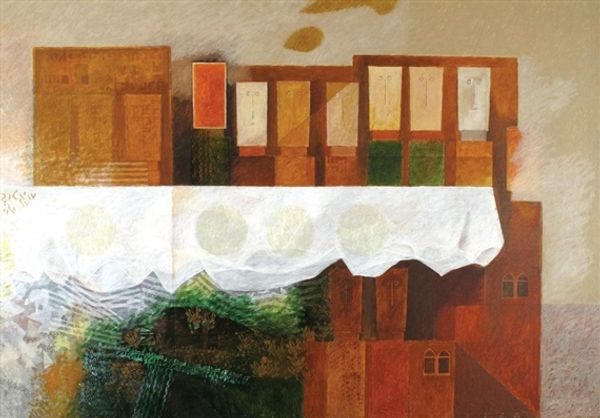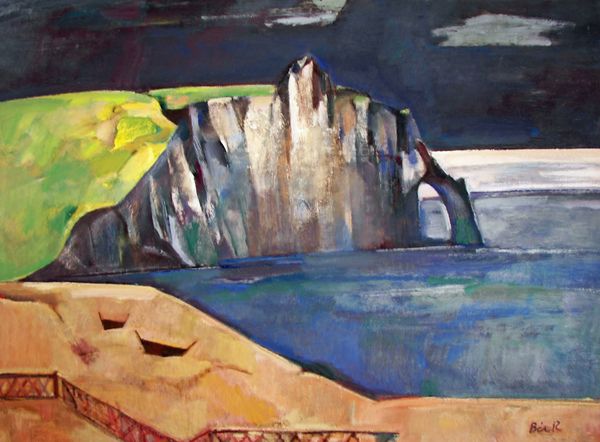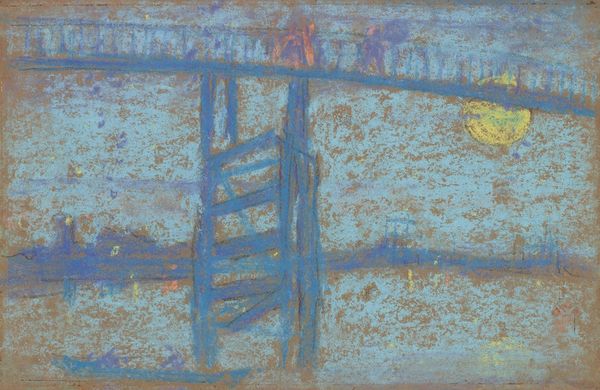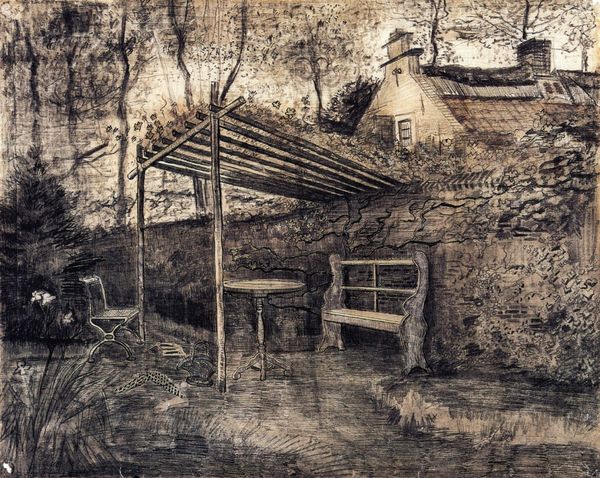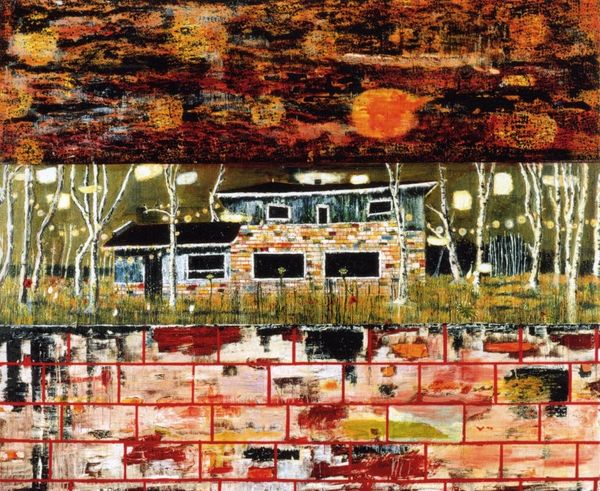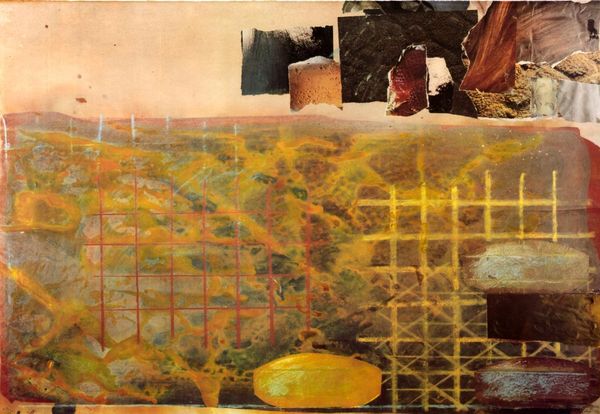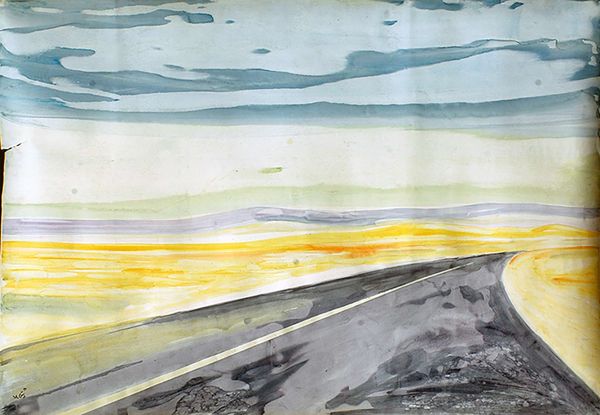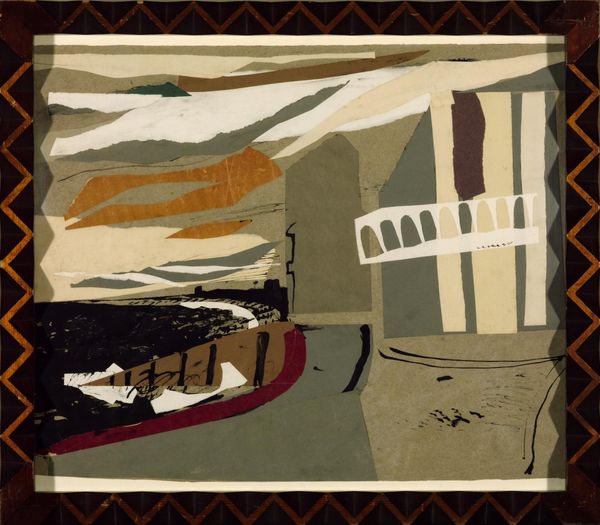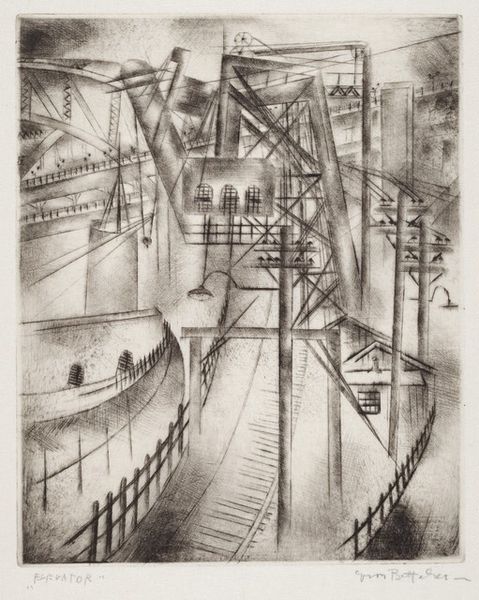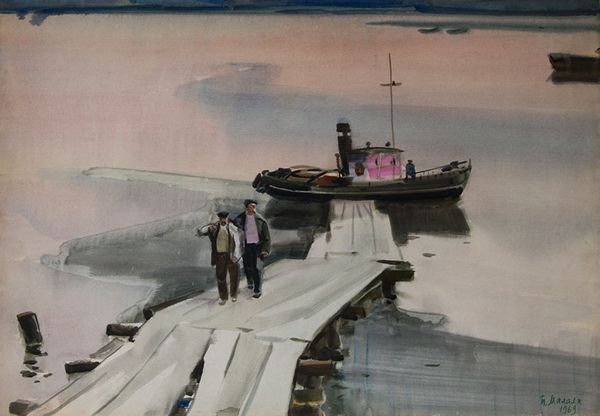
painting, oil-paint
#
art-nouveau
#
painting
#
oil-paint
#
landscape
#
form
#
oil painting
#
geometric
#
expressionism
#
water
#
line
#
cityscape
Dimensions: 89.7 x 90 cm
Copyright: Public domain
Curator: Egon Schiele's 1913 painting, "The Bridge," strikes me as surprisingly whimsical, even buoyant, for his body of work. Look at how the lines playfully define this urban space. Editor: I see something else entirely. I see a bleak and unsettling portrait of urban alienation, typical of early Expressionism, particularly reflecting the social unease brewing in pre-war Europe. Notice how the bridge, typically a symbol of connection, feels isolating here. Curator: But it's the materiality that interests me. Schiele’s loose brushwork and visible pencil lines reveal his process. The layering of thin oil washes creates a textured surface, which feels intentionally raw, like a construction site left exposed. I'd love to know how much the limitations of his access to supplies dictated this visible working. Editor: And what a revealing position to take at a moment rife with social, gender and class tension. This "exposed construction" and limited access to material wealth parallels the vulnerable existence of those on the margins during that time – particularly artists challenging the status quo. Curator: I appreciate that contextualization. Yet, the almost child-like rendering of the boat... there is some lightness to be found within the landscape. That lightness almost contrasts ironically to what one would normally perceive bridges or cityscapes from that period of time to portray. Editor: Right. We must question the symbolic power that Expressionism held in depicting the anxieties of a rapidly modernizing society, reflecting back, in what ways do we, even now, accept or reject such urban spaces and landscapes, with what power dynamics are at play and at whose expense? Curator: So, for you, it's about the bridge symbolizing not just literal connection, but broken promises, the false bridge towards progress and equality. Editor: Precisely. And how even through supposedly child-like composition it still reflects tensions simmering beneath a rapidly changing urban landscape. It feels incredibly urgent. Curator: For me, it’s about Schiele engaging with his supplies, the economy of means, the act of painting itself to record his present moment through landscape. The image may be what holds my gaze, but understanding the physical means it took to manifest really allows the experience to grow beyond what I imagined.
Comments
No comments
Be the first to comment and join the conversation on the ultimate creative platform.
